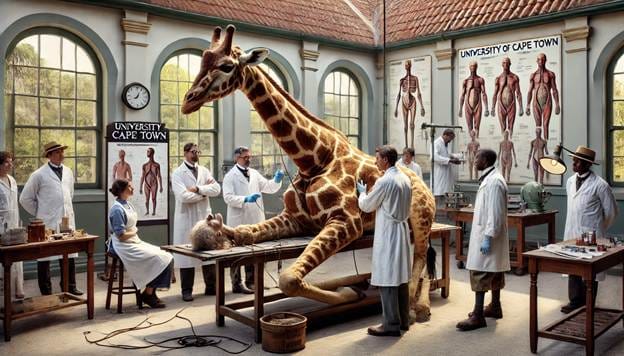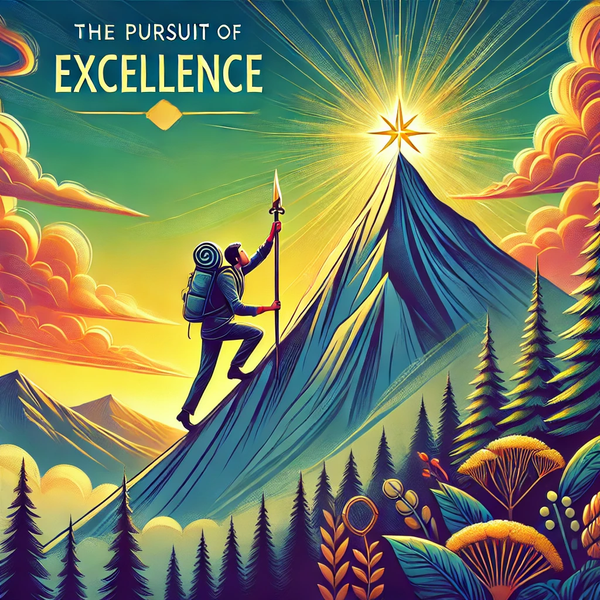Explore the transformative power of a growth mindset and learn to cultivate it through various practical strategies to foster continuous improvement, success, and fulfillment in all aspects of life.
If you are asked to think about one good quality that makes you admire a friend, which would that be? Would it be wealth, social status, handsome appearance, material comforts, high IQ, or a unique talent? Undoubtedly, these qualities are potential ingredients of success. But what is that one thing that makes character shine? It is a person’s attitude or mindset.
What is a Mindset?
Persistent thoughts and emotions solidify into attitudes. When you maintain an attitude for an extended period, it transforms into second nature—a mindset. An aberrant mindset can steer you away from contentment, joy, and enlightenment, while a positive one will guide you toward success, fulfillment, and an extraordinary life.
A popular proverb goes: Attitude leads to altitude. Those who master their emotions and maintain a positive attitude tower above adversity and succeed in their fields. Their ability to control their thoughts allows them to cultivate faith and inspiration, and approach their work enthusiastically. Despite daunting challenges, they remain resilient and determined, propelling themselves to remarkable accomplishments.
In contrast, many find themselves trapped in negative thought patterns, constantly revisiting anxiety, doubt, and resentment. These emotions drain their energy, strain relationships, and hinder their professional growth. Over time, their mind becomes their greatest adversary, preventing them from realizing their full potential. They may blame fate for their misfortunes, but the real obstacle is their inability to embrace the right mindset.
The beauty of a mindset is that it is an internal resource. We do not require anything from the outside to cultivate it. God has given each of us the free will to choose our mindset. We can alter our mindsets to tap into our immense potential that will propel us to success in this life and beyond.
The Extraordinary Mindset of Pablo Casals
Pablo Casals was a world-renowned cellist from Spain. At ninety-five, Pablo Casals, the most exceptional cellist to ever live, continued to practice his music with unwavering dedication. Once, a curious reporter asked him, “Mr. Casals, you have already achieved legendary status. Why do you still practice six hours a day?”
His response was extraordinary: “Because I think I am making progress.”

This is the essence of a growth mindset—a belief that talent is not fixed, but something that can be cultivated with effort, persistence, and a passion for improvement. People like Casals refuse to settle for “good enough.” They challenge their limits, striving for mastery, not because they must, but because they believe in the endless potential of progress. This relentless pursuit of growth separates the truly exceptional from the ordinary.
Understanding the Fixed vs. Growth Mindset
Our mindset significantly impacts our achievements, personal development, and overall success. Some individuals adopt a fixed mindset, believing skills and abilities are predetermined and unchangeable. They assume that talent is an inborn gift and no amount of effort can alter their abilities. They say: "If progress is predetermined by fate, why should we even try?"
With this mindset, they are trapped in mediocrity, never realizing their full potential. In doing so, they squander the immense capabilities they possess.
On the other hand, individuals with a growth mindset firmly believe in the power of continuous learning, perseverance, and practice. They understand that human potential is expandable and that sincere toil and effort can lead to remarkable personal transformations. Cultivating a growth mindset is a rewarding endeavor, exemplified by the life of Hamilton Naki, an extraordinary individual who defied all odds to become a renowned surgeon despite having only a sixth-grade education.
The Inspiring Journey of Hamilton Naki
A Humble Beginning in Rural South Africa
Hamilton Naki was born into a humble family in a small South African village. His father was a shepherd, and his upbringing was marked by simplicity and hardship. Due to his circumstances, he could only complete sixth grade before leaving school.
When his father fell gravely ill, Hamilton left his village and traveled to Cape Town in search of work. There, he secured a laborer's position at the University of Cape Town, initially contributing to construction work. Once the project was completed, he found employment as a gardener on the university's tennis courts. However, fate had something extraordinary in store for him.
An Unexpected Breakthrough
The University of Cape Town was widely recognized for its excellence in the medical field. At the time, doctors were researching giraffes to understand a fascinating biological question: Why do giraffes not suffer seizures when bending their long necks to drink water?
Scientists were investigating how the jugular nerve functioned under extreme tension. During one of these research sessions, a sedated giraffe began shaking violently while its neck was examined. The medical team urgently needed a strong individual to restrain the animal. A doctor spotted Hamilton outside and requested his assistance. He agreed and spent eight hours holding the giraffe still during the surgery. His dedication and physical strength impressed the researchers, and soon, Hamilton was called upon regularly to assist in animal experiments.

From Lab Assistant to Surgeon’s Apprentice
Recognizing his unwavering commitment and keen observational skills, the university promoted Hamilton to lab assistant. His diligence caught the attention of Dr. Christiaan Barnard, the pioneering heart surgeon who later performed the world’s first heart transplant. Dr. Barnard began mentoring Hamilton, teaching him surgical stitching techniques and allowing him to assist in medical procedures.
Hamilton proved to be an exceptional learner. His dexterity, precision, and speed in stitching wounds were unparalleled, leading to his promotion as assistant to the surgeon. Over time, he expanded his knowledge of human anatomy and physiological functions, eventually becoming so proficient that he was asked to teach medical students.
A Remarkable Contribution to Medical Science
Despite lacking formal medical education, Hamilton's expertise in surgical procedures became widely acknowledged. He made a groundbreaking contribution to liver research by identifying a critical nerve, which was later named the Hamilton Nerve in his honor.
Just before his passing, the University of Cape Town recognized his invaluable contributions and conferred upon him an honorary Master’s degree in Surgery.

Inspiration
Hamilton Naki’s journey from gardener to self-taught medical expert is a testament to human beings’ boundless potential. His story exemplifies the growth mindset—the belief that individuals can achieve greatness regardless of their starting point with perseverance, dedication, and effort.
How Mindsets Influence Our Response to Challenges
Dr. Carol Dweck, a renowned psychologist, studied the concept of fixed and growth mindsets. Her research revealed that people’s mindsets influence how they respond to challenges and learning opportunities.
In one experiment, five-year-old children were given puzzles of varying difficulty levels. When asked which type of puzzle they preferred, children with a fixed mindset consistently chose easier puzzles, fearing mistakes. In contrast, children with a growth mindset opted for more challenging puzzles, understanding that difficulty fosters improvement and personal growth.

A similar pattern was observed among college students. Those from disadvantaged backgrounds often struggled with English proficiency. When offered an additional English improvement course, students with a fixed mindset declined, fearing failure. However, students with a growth mindset embraced the opportunity, seeing it as a chance to enhance their abilities.
The Role of Habitual Thinking in Mindset Formation
Our mindsets develop through habitual thought patterns. Just as physical habits become second nature through repetition, mental habits shape our outlook on life. By consistently striving outside our comfort zones, we cultivate a growth mindset that enables us to overcome obstacles and strive for self-improvement.
Conversely, limiting beliefs reinforce a fixed mindset that stagnates our potential. If we continuously tell ourselves that we cannot learn new skills or improve, we condition our minds to accept stagnation.
Cultivating the Growth Mindset
Henry Ford once said: “Whether you think you can or you think you can’t—you’re right.” The more we program ourselves to believe we can surmount obstacles, learn new skills, and grow our personality—the more our character will blossom. The growth mindset allows us to see every ability as a muscle that can be trained. Let us explore how we can foster such a mindset.
- Persist Through Problems: A key characteristic of successful individuals is not the absence of problems; it is their mindset. They maintain a positive outlook despite challenges, often turning negative situations to their advantage. Mastering the skill of overcoming difficulties begins with adopting the right attitude.
How you respond to problems determines the quality of your character. Five hundred years ago, Saint Kabir said:
sonā sajjana sādhujana, ṭūṭeṅ juṛeṅ sau bāra
durjana kumbha kumhāra ke, eke dhakā darāra
‘Gold, virtuous people, and the saints are resilient; you may break them a hundred times, yet they will rejoin. In contrast, evil people and clay pots are fragile; once shattered, they are broken forever.’
Some people fear failure. Like an ostrich that dungs its head into the ground and feels the problem is gone, many refuse to face adversity and quit too soon. They lack the tenacity to endure failure.
However, those who persist despite obstacles eventually succeed. How? By seeing opportunities for growth in those adversities and persisting through them. Persevering through problems nurtures a growth mindset.
- Develop the Learning Mindset: When asked about his 3,999 failures before inventing the electric lamp, Thomas Edison said, "I have not failed, I’ve simply found 3,999 ways that won’t work." This exemplifies the learning mindset. Rather than seeking external validation, Edison focused on his work.
He was process-oriented, not just goal-oriented. Unperturbed by failure or criticism, he used them as stepping stones to progress. The learning mindset can be fostered further by inviting feedback and working on it. Success lies on the far side of failures.
- Building Resilience: This refers to the capacity to recover after facing setbacks. It is the attitude to never give up and keep striving to reach the goal despite failure. Swami Mukundananda beautifully puts it: Think of persistence as the engine that moves you toward your goal, while resilience is the oil that keeps the engine moving.
- See Adversity as a Grace of God: While most people’s idea of success is based on material accomplishments, God’s perspective is otherwise. He has engineered challenges to see us grow from within. Hardships are designed not to stall our progress but to promote us to higher levels of inner unfoldment and growth. He creates challenges that force us to exert ourselves emotionally, intellectually, and spiritually and reach higher stages of perfection.
The Nārad Bhakti Darśhan states: loka-hānau cintā na kāryā niveditātma-loka-vedatvāt (Śutra 61)
Tr. “When worldly losses happen, do not become anxious; see in them the grace of God.”
Conclusion
A growth mindset is the key to unlocking our infinite potential. In academics, career, personal development, or spirituality, embracing this mindset can lead to a remarkable transformation. Make the choice today to develop a growth-oriented perspective and witness the incredible power of continuous learning and self-improvement.
Call To Action
1. Find more about Positive Mindsets. Order your copy of Seven Mindsets For Success, Happiness, and Fulfilment at: https://a.co/d/5RGERmB.
2. Subscribe to the Swami Mukundananda Exclusive portal to find more on the power of mindsets:https://smexclusive.org/dashboard/seven_mindsets/
3. Subscribe to the Swami Mukundananda YouTube channel and find Tips to develop a Growth Mindset: Don't Break Under Pressure - 5 Tips for Dealing with Problems in Life | Swami Mukundananda
Resources
● Mukundananda, S. (2023) Seven Mindsets For Success, Happiness and Fulfilment. Rupa. New Delhi, India
● Mukundananda, S. (2021) Seven Divine Laws To Awaken Your Best Self. Harper Collins. New Delhi, India
● Mukundananda, S. (2024). Questions You Always Wanted to Ask. Rupa. New Delhi, India
● Growth vs. Fixed Mindset: Which One Are You? Inspiring Story of Hamilton Naki | Swami Mukundananda
● Don't Break Under Pressure - 5 Tips for Dealing with Problems in Life | Swami Mukundananda
● https://smexclusive.org/dashboard/play/758188015




